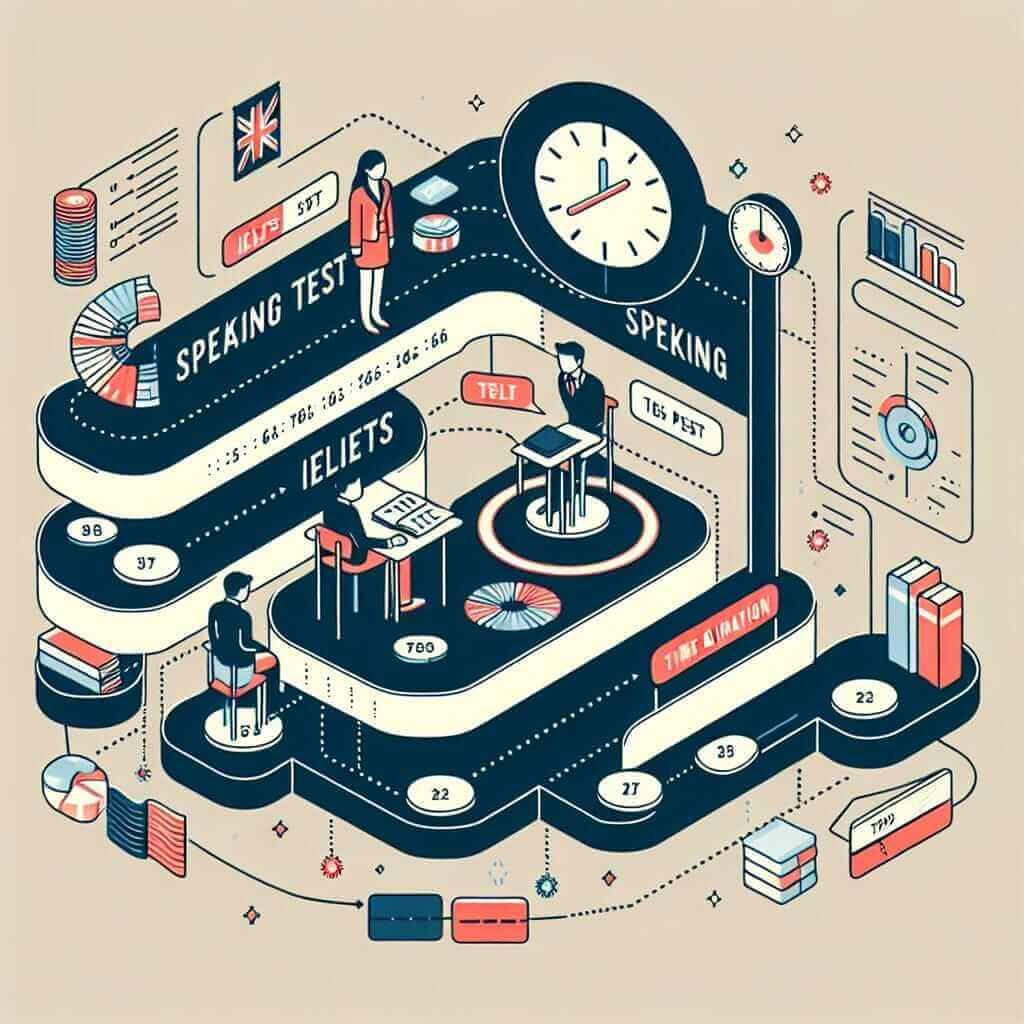The IELTS Speaking test often causes anxiety among candidates, yet it’s a crucial part of the exam. This component assesses your ability to communicate effectively in English in a real-life scenario. A high score on the Speaking test demonstrates your fluency, vocabulary range, grammatical accuracy, and pronunciation. It reflects your ability to express yourself clearly and confidently, which is essential for academic study, professional success, and social integration in an English-speaking environment. Whether you’re aiming for a band 7 or aiming even higher, this guide provides a comprehensive approach to help you excel.
Understanding the IELTS Speaking Test
The IELTS Speaking test is a one-on-one interview with a certified examiner, lasting between 11-14 minutes. It consists of three parts:
Part 1: Introduction & Interview (4-5 minutes)
Here, the examiner asks general questions about yourself, your interests, and familiar topics like hobbies, work, or family. This part aims to put you at ease and assess your basic fluency.
Part 2: Individual Long Turn (3-4 minutes)
You’ll be given a task card with a specific topic. You’ll have one minute to prepare your thoughts and then speak for up to two minutes. The examiner won’t interrupt but will ask one or two rounding-off questions at the end.
Part 3: Two-Way Discussion (4-5 minutes)
This part involves a deeper discussion related to the topic in Part 2. The examiner will engage you in a more analytical and abstract conversation, testing your ability to express and justify opinions, analyze, and speculate.

Key Strategies for a High Score
While the IELTS Speaking test might seem daunting, a strategic approach can significantly enhance your performance:
1. Fluency and Coherence
- Speak Naturally: Avoid memorized responses. Examiners can easily spot this. Speak naturally, even if it means self-correcting occasionally.
- Connect Your Ideas: Use linking words and phrases (e.g., ‘however,’ ‘furthermore,’ ‘on the other hand’) to ensure your speech flows smoothly.
- Expand Your Answers: Don’t just provide one-word answers. Aim to provide detailed responses, demonstrating your language range.
2. Lexical Resource (Vocabulary)
- Vary Your Vocabulary: Avoid repetition by using synonyms and paraphrasing. Show the examiner you possess a wide range of vocabulary.
- Use Idiomatic Language: Incorporate idioms and expressions where appropriate. However, ensure they’re used correctly and naturally.
- Be Precise: Use vocabulary specific to the topic. For example, if discussing the environment, use terms like ‘sustainable development’ or ‘renewable energy.’
3. Grammatical Range and Accuracy
- Use a Variety of Structures: Demonstrate your command of English grammar by using complex sentences, different tenses, and a mix of simple, compound, and complex sentences.
- Maintain Accuracy: While it’s encouraged to be ambitious with your grammar, accuracy is key. Avoid making basic grammatical errors that can affect your score.
4. Pronunciation
- Speak Clearly: Enunciate your words properly. Pay attention to individual sounds and word stress.
- Use Intonation: Vary your pitch to add interest and emphasis to your speech.
- Record Yourself: Practice speaking and listen back to identify areas for improvement in pronunciation.
Example Using a Real IELTS Speaking Topic:
Part 2 Topic: Describe a time you helped someone.
Example Response:
“I recall a time when I helped my elderly neighbor, Mrs. Smith, who had slipped on ice and fractured her wrist. Being unable to carry her groceries, I offered my assistance. I visited her regularly, ensuring she had everything she needed, from medication to warm meals. I even helped her with some light housework. Although it was a challenging period for her, I found it immensely rewarding to lend a hand. It taught me the importance of compassion and community support.”
This response demonstrates fluency, a range of vocabulary, and good grammatical structures. It also provides personal details, making the narrative more engaging.
Tips for Success:
- Practice Regularly: The more you practice speaking English, the more confident and fluent you’ll become.
- Find a Speaking Partner: Converse with a native English speaker or a fellow IELTS candidate to improve your speaking skills.
- Record Yourself: Listen back to your recordings to identify areas for improvement in pronunciation, fluency, and grammar.
- Don’t Memorize Answers: Focus on developing your communication skills, not reciting pre-prepared answers.
- Relax and Be Yourself: Speak naturally and confidently. The examiner wants to hear you speak English to the best of your ability.
Conclusion
Achieving a high score on the IELTS Speaking test requires consistent effort, focused practice, and a good understanding of the test format. By focusing on fluency, vocabulary, grammar, and pronunciation, and by implementing the strategies outlined above, you can significantly enhance your speaking skills and approach the test with confidence. Remember, the goal is not to speak perfect English but to communicate your ideas clearly and effectively.